Dr Mohammad Taqi MD is an Assistant Professor of Medicine at the University of Florida. Concurrently, he is also a certified Family Practice and Internal Medicine specialist at the Shands Live Oak hospital in the same state. But this is one side of his professional profile. In Pakistan, he is somewhat known across the elite intelligentsia as a vocal Daily Times columnist holding very liberal views on domestic affairs and regional developments. Most notably, like a handful of other highly educated professionals such as Pervez Hoodhboy, he seems to have ample amount of time to regularly write columns with a pattern of regularly maligning Pakistan’s military establishment.
While he is completely entitled to his opinions and beliefs, it is pertinent to question the claims he made after being sacked (what he calls “asked to stop”) by his host newspaper. Dr Taqi came out with op-eds in leading Indian and American news networks accusing Pakistan Army and its current chief of waging what he perceives as “a low-intensity war against diversity of opinion”. The op-ed in Indian Express was ominously titled ‘They took down my column’, pointing fingers at GHQ for allegedly censoring his writings.
Dr Taqi has been writing columns for about 6 years or more, which means he was well active during the Ashfaq Kayani-Shuja Pasha era and presently during the Raheel Sharif-Rizwan Akhtar period. General Raheel Sharif was appointed Chief Of Army Staff (COAS) in November 2013 which means Dr Taqi was never stopped from writing columns during the more than two years of the former’s tenure. His columns were published every Thursday on the Daily Times newspaper and also its website.
Dr Taqi’s last op-ed for Daily Times seems much bland in contrast to the rich content of the past in which he kept emphasizing the ‘deep state’s’ alleged role in destabilizing everyone in the neighborhood, including itself. Doesn’t seem provocative enough for it to actually lead to forced closure.
In the concluding paragraph of his aforementioned column, Dr Taqi wrote that media freedom under General Sharif “is a myth”. To verify Dr Taqi’s grand assertions, let us browse through some of his columns since November 2013 (when General Sharif assumed charge) and try to summarize what they said about Pakistan Army, security agencies and the person of General Raheel Sharif. Bear in mind all of this information is based on an archive of Dr Taqi’s columns on the Daily Times website. Irrelevant columns have excluded.
Timeline
November 7, 2013: ‘Wailing for the terrorists’
• Hakeemullah lived in a compound near an army garrison
• Pakistani forces are not willing to tackle terrorism
November 14, 2013: ‘Af-Pak and the military-mullah tiff’
• Pakistan’s military was most likely aware of Haqqani Network’s activities near Islamabad
• The security establishment should think over its association with militants in Afghanistan and Pakistan
December 5, 2013: ‘Twixt Tweedle-dum and Tweedle-dee’
• Selecting the ‘right’ General alone will not balance the civil-military relations for Nawaz Sharif
• Keeping General Raheel Sharif’s credentials aside, there is little to suggest his approach will be different from that of his predecessors
December 26, 2013: ‘The Mirali tragedy’
• The military has failed to purge North Waziristan of militants
• Pakistan’s security forces has made alliances with terrorists in FATA and deals with them
• Pakistan supports Haqqani network terrorists in Afghanistan
• General Raheel Sharif will have to stop the ‘good Taliban, bad Taliban’ rhetoric to effectively counter militancy
January 2, 2014: ‘Bungled talks, botched operations’
• Pakistan Army has tolerated, if not facilitated, jihadist groups running mini-states in North Waziristan
• Pakistan Army had no objections when Afghan Taliban, whom it supports, facilitated TTP to execute terrorist attacks across tribal areas and KP
• General Raheel Sharif and PM Nawaz Sharif should reverse the policy of appeasing militants and leasing FATA to terrorists
• Pakistan’s security establishment should cut its umbilical cord with jihadists if it serious in rooting out the menace of terrorism
January 16, 2014: ‘Tepid outrage over terrorism’
• It is highly unlikely that the Pakistani military will abandon its Afghan proxies
January 30, 2014: ‘Balochistan bleeding’
• The state (security establishment) has employed the strategy of using jihadist proxies to counter Baloch nationalism
• The same strategy was used to neutralize Pashtun nationalists in Afghanistan and Pakistan
• The state should stop using proxies else Balochistan will continue to bleed
February 20, 2014: ‘Terror, talks and trepidation’
• Conducting military operation in North Waziristan alone will not help, it raises false hopes
February 27, 2014: ‘Inching towards action’
• Pakistan Army wants to target TTP in North Waziristan while leaving Haqqani network and Hafiz Gul Bahadur group alone
• Pakistani security establishment is responsible for creating the mess in its own territory
March 6, 2014: ‘A faux ceasefire’
• The Pakistani military still makes a dangerous distinction between ‘good’ and ‘bad’ Taliban
• The security establishment has planned to shift Haqqani and Gul Bahadur group fighters to Afghanistan along with logistics support once the environment is conducive
• Pakistan’s military establishment is highly unlikely to take on its ‘good Taliban’
April 3, 2014: ‘Hooked on jihadism’
• Pakistani military is meddling in the Middle East on behalf of its Arab patrons
• It also continues to stoke fire in Afghanistan
• Pakistan’s military-intelligence complex will not correct its course in the near to midterm
• It is resurrecting Masud Azhar-type jihadists to undermine improving ties with India
April 17, 2014: ‘The military-Muslim League spat’
• Pakistan’s military establishment is not serious about an operation in North Waziristan
• It wants TTP factions to fight among themselves then reorient the pliable ones towards Afghanistan
May 15, 2014: ‘Raising the Pashtun question’
• Pakistan’s security establishment will have to stop supporting jihadists and Taliban of all shades in Afghanistan before its calls for peace are taken seriously by Kabul
June 5, 2014: ‘Book Review: An ideological army, jihad and greed’
• Praises for C. Christine Fair who wrote the book ‘Fighting to the End: The Pakistan Army’s Way of War’
June 26, 2014: ‘North Waziristan operation: too little, too late?’
• Operation Zarb-e-Azb is just another tactical maneuver and not a major policy shift from the past
• Pakistan’s establishment is still using jihadists to neutralize nationalists in Balochistan
July 10, 2014: ‘The merchants of menace’
• Keeping ISPR’s bravado aside, locals say the outcome of Operation Zarb-e-Azb will not yield anything
• The military establishment has allowed domestic, regional and transnational jihadists to operate freely in North Waziristan
• Unless institutional accountability and transparency is ensured, General Raheel Sharif’s assurances to fight terrorists of all shades will keep producing further merchants of menace
July 17, 2014: ‘Zarb-e-Azb: trust but verify’
• Pakistan Army allowed ‘good’ Taliban to escape into Afghanistan whereas the TTP (irreconcilables) were not allowed to escape and were targeted
• One should verify ISPR’s claims of Zarb-e-Azb’s successes instead of blindly trusting them
August 7, 2014: ‘Warning about the military’s transnational jihad’
• Book review of Arif Jamal’s book ‘Call for Transnational Jihad: Lashkar-e-Taiba 1985-2014’
August 21, 2014: ‘Soft coup, hard reset?’
• Pakistan’s military establishment is the ultimate beneficiary of Imran Khan and Tahir Ul Qadri’s ‘dharna’
August 28, 2014: ‘The D-Chowk deadlock’
• Imran Khan is moving head with a depoliticization process which only suits the military establishment
September 18, 2014: ‘D-Chowk: Pakistan’s domestic Kargil’
• Pakistan’s security establishment is supporting Imran Khan-Tahir Ul Qadri to kick out Nawaz Sharif from power
October 2, 2014: ‘How to guard the guardians?’
• Book review of ‘The Army and Democracy: Military Politics in Pakistan’ authored by Aqil Shah.
October 30, 2014: ‘Balochistan: murders most foul’
• Pakistan’s military-intelligence agencies deploy anti-Shia militants as to crush Baloch and Pashtun nationalists
• Afghan Taliban’s Quetta Shura is based in Quetta
• Pakistan’s military establishment tried to stoke fire in Afghanistan and its fingers were burned when TTP turned on it
• ISPR keeps repeating claims of successes in North Waziristan whereas in the past it was unwilling to accept any problems existed there
November 6, 2014: ‘Suicide attacks: jihadist and academic’
• The Pakistan army portrayed India as a regional hegemon out to destroy the “citadel of Islam”, even when Nehruvian India was following a clear pacifist policy
• Pakistan’s security establishment has been hell-bent on undoing or at least undermining India
November 20, 2014: ‘Pakistan’s Afghan policy: arsonist or fireman?’
• Pakistan does not appear to be taking any serious action whatsoever against any of the three prongs of the Afghan Taliban insurgency that it harbours
• The Pakistani security establishment appears to meticulously be repeating its November 2001 drill when it retracted and preserved its Afghan Taliban proxies only to launch them with a vengeance in 2004-2005 when the US took its eyes off the ball
• US officials would be naïve if they believed General Raheel Sharif’s assertions that 6-months of Operation Zarb-e-Azb has managed to clear 66 years of jihadist cancer
November 27, 2014: ‘Pakistan’s foreign policy pudding’
• Pakistan’s security establishment continues to discredit politicians and elected governments at home by using establishment-friendly media and religious-political parties
• The US must realize that the Kashmir problem remains the Pakistani security establishment’s economic raison d’être
December 4, 2014: ‘The US’ Af-Pak policy: fool me twice?’
• Pakistan Army has failed to show that it has captured or killed a single Haqqani network commander or a member of Mullah Omar’s Quetta Shura
December 18, 2014: ‘Another massacre in my city’
• Current civil-military leaders should realize that counter-terrorism initiatives will prove fruitless until making distinctions between ‘good’ and ‘bad’ Talibans is stopped
January 1, 2015: ‘Just add military?’
• Imposition of military courts will be a de facto martial law since it will leave out citizens’ recourse to the Supreme Court’s writ of habeas corpus
• Pakistan Army cannot be left alone as the jude, jury and executioner in the war against terrorism
January 8, 2015: ‘Military courts: a backwards march’
• Pakistan’s establishment diverted intelligence failures of APS attacks towards the judiciary
• No inquiry into the APS attack took place
January 22, 2015: ‘Pakistan’s paradigm shift: too good to be true?’
• The fact that all Haqqani network operatives have gone scot-free raises serious doubts about whether the Pakistani security establishment would actually take on the Haqqanis, who have been its oldest jihadist asset
• Pakistan-Haqqani ties date back to the mid-1970s, long before any Soviets, the US, mujahideen, Taliban or al Qaeda popped onto the scene, and are unlikely to be severed so abruptly
• The same goes for the Jamaat-ud-Daawah which truly is the top-drawer ‘good’ jihadist outfit that hardly ever bucks its handlers in Pakistan’s security establishment
January 29, 2015: ‘The curious case of banned outfits’
• Pakistan’s security establishment has directed propaganda against India and Afghanistan post-APS attack
• ‘Benign’ jihadism is rampant in the security establishment as well
March 5, 2015: ‘Words, words, mere words’
• Pakistan’s Afghan policy remains a throwback to the ‘great game’ and, more recently, the Cold War era, to mark a presumed sphere of influence
• The Pakistani establishment’s game plan has been to outwait the US and international forces in Afghanistan. The idea all along has been to wear both Washington and Kabul down to the point that Pakistan can dictate not only the timing but also the terms of a peace deal for Afghanistan
April 30, 2015: ‘The republic of fear’
• Inquiry report on attack on Hamid Mir never came, neither will Sabeen Mahmud’s killing, as the military promised
• Baloch nationalist view CPEC with deep suspicion
May 14, 2015: ‘Burying freedom of expression’
• The Foreign Office (Islamabad) has failed to furnish proof to India about RAW’s involvement in stoking unrest in Balochistan
• The China-Pakistan Economic Corridor is designed to not just sap Balochistan’s resources but also wipe out any nationalist naysayers who oppose the interests of the ‘core state’ permanently
• From being a prison house of nationalities like Tsarist Russia, Pakistan has become a slaughterhouse for some of them, like the Baloch
May 21, 2015: ‘Pak-Afghan relations: war is peace?’
• The so-called strategic depth sought inside Afghanistan has been a function of Pakistan’s recalcitrant quest for ‘parity’ with India
• Going by the anti-India virulence on display in Pakistan at the highest level, the national security paradigm does not appear to have changed one bit
June 4, 2015: ‘Igniting an ethnic powder keg?’
• Elements in Pakistan’s security agencies are also behind violence in Balochistan
• In Balochistan, the security establishment appears to be following the Sri Lankan template that was used to decimate the Tamil separatists there
• The security establishment has been using jihadist assets to neutralize Baloch nationalists
June 18, 2015: ‘The curse of the corridor’
• The state seems gung-ho on going through with the highway network and in the process routing the nationalist-separatists and assimilating the resource-rich Baloch territory
June 25, 2015: ‘The Pak-Afghan cauldron’
• The attack on the Afghan parliament should be an eye-opener for the Afghan president that his ostensible peace process with the Taliban and Pakistan is untenable
July 2, 2015: ‘Business as usual’
• The Afghan Taliban’s surge since the start of their so-called spring offensive on April 24 indicates that their leadership, logistics and firepower remained unscathed by Operation Zarb-e-Azb
• The Afghan jihadists survive and thrive thanks to patronage — money, training, logistics and even passports — just as they did in the 1980s. The Pakistani officials who reportedly asked the Afghan government to issue hundreds of passports to the Taliban would surely know their whereabouts too
• Developments inside Pakistan in tandem with a duplicitous Afghan policy suggest that even under the new stewardship little has actually changed. From behind the façade of a faux Baloch nationalist government, brute force has been unleashed against the Baloch insurgents
July 16, 2015: ‘The Murree brew’
• Pakistan’s singular objective in Afghanistan has been to win a seat for the Taliban at the negotiations table in Kabul if not win that city for them
July 23, 2015: ‘Afghan peace talks: a sure uncertainty’
• If the upcoming talks indeed do materialize, the composition of the Taliban delegation there may serve as a good indicator of the jihadist group’s cohesiveness and the relationship status of its various factions with Pakistan
• Controlling the jihadist kitty, weapons flow and limiting access to the Taliban leadership are other levers that Pakistan has used with success over the years
• Pakistan’s security calculus vis-à-vis India has not changed one bit with the corollary that its interest and most likely the tactics in Afghanistan have not changed either
August 6, 2015: ‘The rise and demise of Mullah Omar’
• From massacres of the Shias, Ahmadis and Christians to attacks on the Sri Lankan cricket team and indeed on the army’s General Headquarters itself, the vipers raised in the jihadist pit, designed to execute a proxy war in Afghanistan, have consistently come back to bite us
• The cost-benefit analysis that the elements of the Pakistani security establishment have in their minds might never be known
• Pakistan’s much-trumpeted course correction may still be a red herring
August 13, 2015: ‘Afghanistan: ghost war, ghost peace’
• To stop the cycle of ghost war and ghost peace imposed upon Afghanistan the international community, including the US, will have to hold Pakistan’s feet to the diplomatic fire
September 24, 2015: ‘Badaber and beyond’
• It is unlikely that, going forward, Pakistan will quit picking and choosing between the ‘good’ and ‘bad’ Taliban
• For assorted expediencies, the kid-glove treatment to the known jihadist-infested religious seminaries, the Afghan Taliban and the India-oriented jihadists did not change even after the APS attack and are likely to remain the sine qua non of the Pakistani attitude to jihadist terror even beyond the Badaber attack
October 22, 2015: ‘Mr Sharif goes to Washington’
• That PM Nawaz Sharif’s Washington visit is being bookended by the Director General (DG) Inter-Services Intelligence (ISI) and the Chief of Army Staff’s (COAS’) visits to the US, before and after the PM’s tour, respectively, indicates that he is expected not to veer from the line drawn by the brass and the visit is all about security issues
• The irony is not that the military establishment is jostling its way back to a nearly complete hold over state affairs but that the intelligentsia, including quasi-liberal analysts, is also piling on the civilians
• The civil nuclear deal if and when it comes up in the future has to be tied to curtailing the jihadist head count, not just nuclear warheads
November 12, 2015: ‘Afghanistan: a deadly stalemate’
• Pakistan’s Chief of Army Staff (COAS), General Raheel Sharif, arrives in the US this weekend with the agenda reportedly “to share ideas on Afghanistan”. Curiously, the COAS invited himself for the visit
• The Afghan unity government has limited options vis-à-vis Pakistan’s continued hegemonic posturing
Last column: November 26, 2015: ‘Pie in the sky’
• Pakistan has generally been patted on the back for the Zarb-e-Azb Operation but that does not mean it should get a free pass for dispersing the hornets into the neighbour’s yard after eliminating their nest at home
• The involvement of Pakistani jihadists first in Kunduz and now in Khost will further sour an already tenuous relationship between the two countries
• National Action Plan (NAP) against terrorism lay in tatters in Jhelum and Timargarah. The ideological tinderbox of jihadism clearly remains as brimming as ever and it would be suicidal to allow various militants to consort together and regroup along the Durand Line
Conclusion
Studying the pattern of distinct comments made against Pakistan’s military-intelligence agencies and discrediting the state’s attempts to counter foreign-sponsored Baloch separatism show considerable insight into the mind of Dr Mohammad Taqi. A more detailed study of his mostly rhetorical tweets and interviews to foreign Pashto-language media networks makes the picture clearer; the (not good) doctor belongs to the same elitist ‘Loy Afghanistan’ group like Farhat Taj, Said Alam Mehsud, Afrasiab Khattak et al who are activists for an independent ‘Pashtunistan’ that merges KP and tribal areas into a ‘Greater Afghanistan’.
Then again, in all fairness, Dr Taqi is free to choose his ideological inclinations but to claim that his rather not-so-grand writings (he is not much known locally, let alone internationally) invited the ire of Pakistan’s ‘deep state’ sound childish, unless his objective is to grab global attention for the fame he could have (but didn’t) enjoy. The good thing is that his friends in India and the US have courteously taken it upon themselves to highlight the ‘censorship’ which Dr Taqi has had to face while conveniently ignoring a very important question:
Was General Raheel Sharif or his subordinate ‘minions’, as Dr Taqi likes to call them, too lazy to ignore his historic outburst of criticism against the security establishment? Two years of writing under General Sharif’s rule is quite a lot of time. Plus the fact that, as the timeline above shows, much severe criticism or rather severe allegations, were made in the past. Dr Taqi’s last op-ed for Daily Times seems much bland in contrast to the rich content of the past in which he kept emphasizing the ‘deep state’s’ alleged role in destabilizing everyone in the neighborhood, including itself. Doesn’t seem provocative enough for it to actually lead to forced closure.
Dr Taqi, I’m afraid your publicity stunt is simply tasteless.


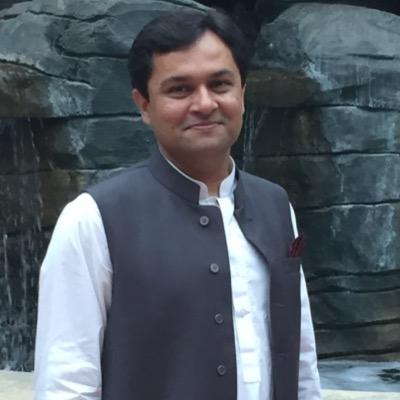
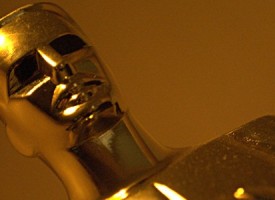
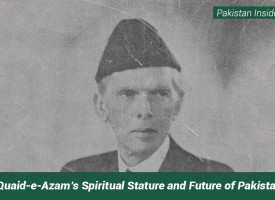
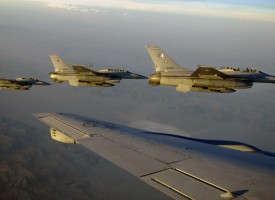
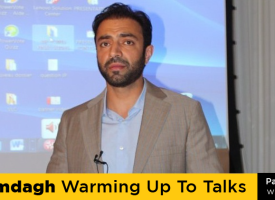


Auther has stated the fact very politely . Being liberal Pakhtoon myself, I can’t imagine No matter how much reservations I have against the many things wrong in my country , I would never ever wash my dirty laundry in public . Mr.Taqi, u are a Snitch !!!! Shame on You.